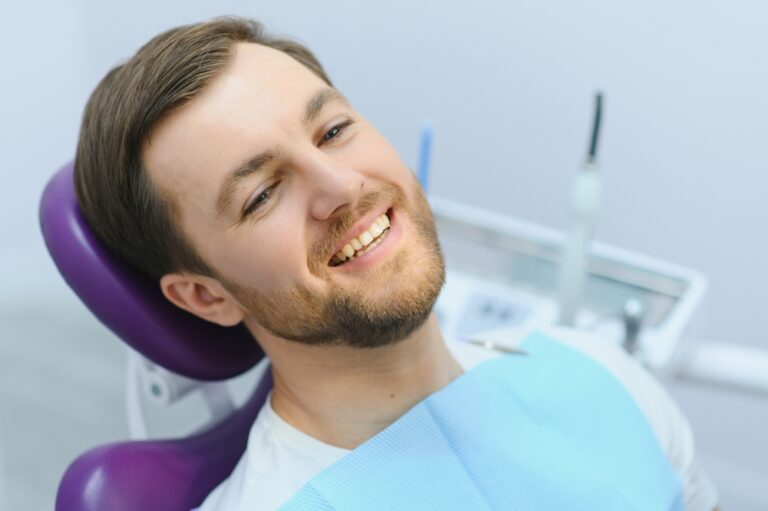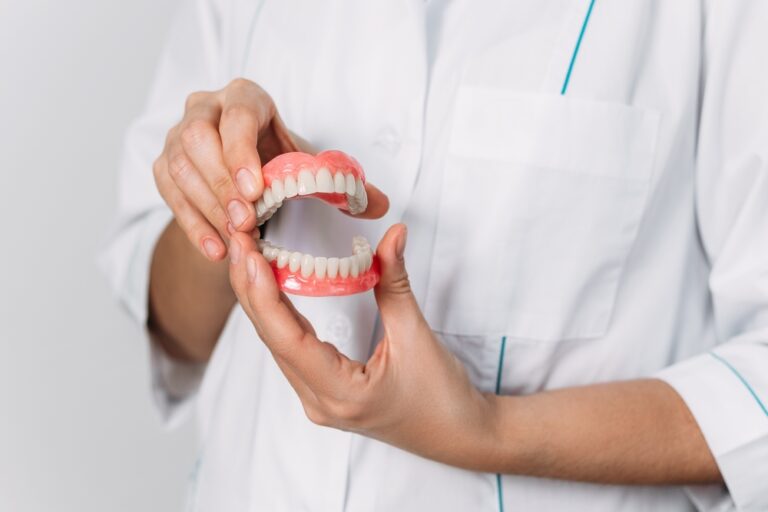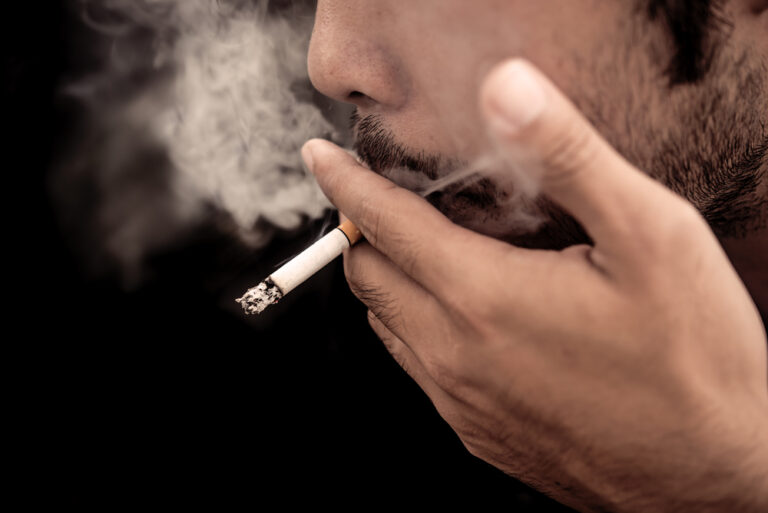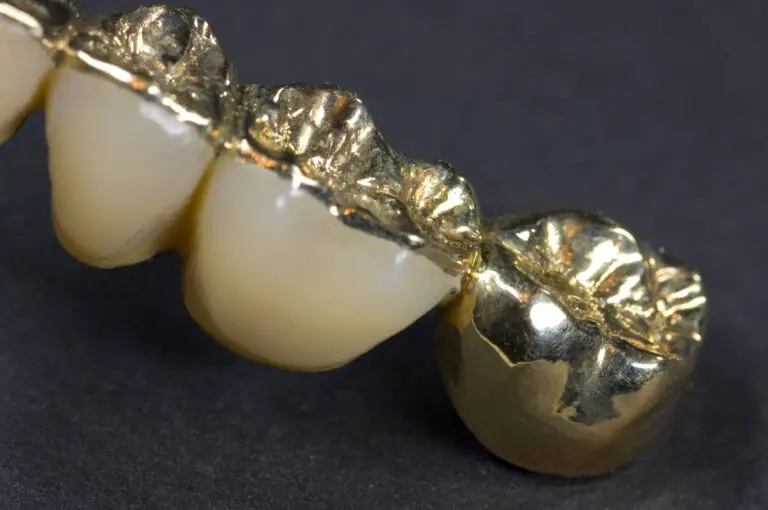Teeth grinding, also known as bruxism, is an exceptionally common condition that impacts millions of individuals globally. It includes clenching or grinding the teeth, frequently while sleeping during the night. Over time, this habit can erode tooth enamel and lead to additional dental complications. Thankfully, in a lot of cases, grinded teeth have the potential to be repaired and restored through a variety of dental treatments.
What Triggers Teeth Grinding?
There are numerous potential causes of bruxism that health professionals have identified:
- Stress and anxiety – This is one of the most frequent triggers for teeth grinding. Both occasional and chronic stress can prompt individuals to clench or grind their teeth, especially while sleeping. Events like work pressures, relationship issues, financial concerns, traumatic experiences, and general worries can activate bruxism.
- Sleep disorders – Conditions like obstructive sleep apnea, which causes breathing interruptions during sleep, may lead some individuals to grind their teeth at night. Restless leg syndrome and frequent night awakenings are also connected to increased bruxism.
- Abnormal bite alignment – Having a malocclusion, also known as a bad bite, can result in the upper and lower teeth not fitting together optimally. This mismatched bite can cause teeth to grind against each other. Underbites, overbites, crossbites, and crooked teeth may prompt grinding.
- Medications – Certain medications like selective serotonin reuptake inhibitors (SSRIs), tricyclic antidepressants, and amphetamines are associated with increased bruxism. Anticonvulsants and dopamine agonists may also play a role. Grinding is a side effect for some of these drugs.
- Additional factors – Teeth grinding may occur secondary to neurological conditions like Parkinson’s disease, dementia, and Huntington’s disease. Other medical issues like reflux, allergies, ear infections, and chronic pain may contribute to bruxism as well. There also appears to be a genetic component, so having a family history of grinding makes some individuals more predisposed.
Adverse Effects of Teeth Grinding
When bruxism is left unchecked for long periods of time, it can lead to various problems within the mouth:
Worn Teeth
The constant grinding motion wears down protective tooth enamel. This abrasion can cause chips, cracks, and excessive thinning of the teeth, which exposes inner layers. It typically impacts the biting surfaces of teeth most significantly. However, grinding can wear teeth unevenly all over the mouth.
Increased Tooth Sensitivity
As outer enamel erodes away, the softer dentin layer underneath becomes exposed. Dentin contains microscopic tubules that lead directly to the pulp and nerves of the teeth. This makes them extremely sensitive to temperature changes from hot or cold foods or drinks. Even mild air currents can cause discomfort.
Fractured or Loose Teeth
In serious cases of long-term bruxism, the powerful forces generated by clenching and grinding can actually lead to teeth fracturing or becoming loose or displaced. This occurs most often with molars but may also impact front teeth in some individuals. Fractured teeth frequently require dental restoration or extraction.
Painful Jaw Muscles
The repeated tensing of jaw muscles during grinding applies intense pressure. As the condition progresses, this persistent strain commonly results in pain and soreness focused around the temporomandibular joint. Spasms and restricted range of motion are also common.
Headaches
The referral of pain from sore jaw muscles and TMJ pressure can radiate up and cause frequent tension headaches or migraines. These may occur both day and night. Head pain upon awakening is a telltale sign of nocturnal bruxism.
Dental Treatments to Repair Ground Teeth
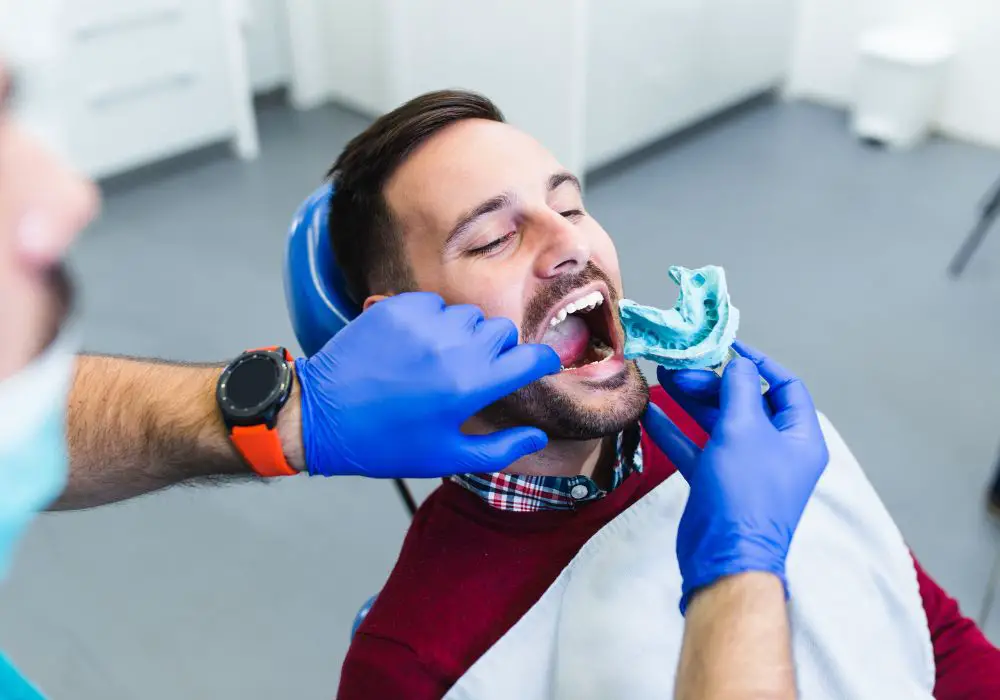
If you notice indications of substantial teeth grinding, scheduling an appointment with your dentist promptly is advisable. The sooner restorative treatment begins, the better chance you have of repairing damage and preventing additional dental issues from developing. Here are several of the top treatment methods:
1. Dental Fillings
Fillings constructed from composite resin, porcelain, or metal alloy can repair areas where bruxism has worn down or cracked the teeth. The process involves removing any decayed tissue and then filling the newly created space. Well-done fillings can restore form, function, and aesthetic appearance.
2. Dental Crowns
Also known as caps, crowns are a restorative solution when teeth become extremely worn or damaged from fractures. The dentist will reshape and prepare the original tooth, removing some of the structure. They then fit and adhere a strong crown cover on top that replaces the missing enamel. Crowns reinforce and guard vulnerable teeth.
3. Porcelain Veneers
Veneers are ultra-thin shells that adhere directly to the visible front side of teeth. Getting these customized coverings can vastly improve the look of worn, cracked, or otherwise aesthetically unpleasant teeth. Veneers provide a natural appearance and protect from further grinding damage.
4. Clear Aligners
Clear aligner therapy from companies like Invisalign involves using a series of transparent trays to incrementally shift teeth. Aligners can help improve the bite alignment, which may in turn reduce grinding behaviors originating from structural issues like malocclusion.
5. Night Guards
Custom night guards made by dentists are a vital treatment component for bruxism. Worn over the teeth at night, these shields absorb forces from grinding and clenching. Rigid mouthguards and soft splints are two main types. Impressions or scans are used to make unique guards.
6. Medications
Medications like muscle relaxants, antianxiety drugs, and Botox injections can relax the muscles and thereby reduce grinding behaviors. These pharmaceutical options are usually short-term and coupled with other treatments. They may help retrain the reflex to clench and grind.
7. Stress Reduction
Given that psychological factors like chronic stress and anxiety are primary triggers, stress-relieving techniques can aid in reducing the rate of teeth grinding episodes. Cognitive behavioral therapy, biofeedback, physical exercise, massage, meditation, hypnosis, and improved sleep habits may all be beneficial.
When to Seek Professional Assistance
Consulting a dentist promptly is prudent if grinding leads to any of the following severe symptoms:
- Extensive tooth damage, fractures that expose nerves, or marked loosening
- Intense jaw pain, soreness, or spasms that disrupt sleep or eating
- Frequent headaches, especially those waking you from sleep
- Trouble chewing, eating, or biting due to pain or dysfunction
Letting bruxism progress unchecked enables further destruction each day and night. Seek assistance as soon as initial damage becomes apparent. Don’t delay until you have advanced issues.
What to Expect at the Dentist’s Office
During your appointment for suspected teeth grinding, the dentist will likely:
- Perform a clinical exam checking for signs of wear, fracture, sensitivity, and loss of tooth structure
- Evaluate your bite alignment, contacts, and ability to move the jaw
- Palpate the muscles and TMJ for tenderness and discomfort
- Take dental imaging x-rays to visualize below the surfaces
- Discuss pertinent medical history, medications, and lifestyle factors
- Have you demonstrate your grinding or clenching habit, if able
After determining the probable cause and extent of damage, your dentist will advise on appropriate treatments, which may happen that day or require follow-up visits. Ongoing dental checkups are imperative for monitoring bruxism.
Can Teeth Be Irreparably Harmed from Grinding?
Yes, in severe long-standing cases of teeth grinding, the resultant damage can ultimately be so extensive that teeth cannot be restored to full form and function. Permanent repercussions may include:
- Loss of tooth structure unable to be replaced by dental work
- Extreme attrition wearing teeth down to stumps needing extraction
- TMJ disorders like osteoarthritis from perpetual muscle strain
- Pulp death and abscesses due to damage extending deep into teeth
- Eventual tooth loss if initial problems go unaddressed
This underscores the importance of seeking intervention early through dental appliances, medication, and lifestyle changes. The sooner treatment begins, the higher likelihood of saving your natural teeth and oral health.
Long-Term Outlook After Dental Repair
With timely treatment and ongoing meticulous care, the prognosis is positive for repaired, grinded teeth. However, they will likely necessitate more frequent dental maintenance and replacement of restorations in the future.
- Fillings and crowns usually need replacing every 5-15 years
- Porcelain veneers may require redoing after about 5-10 years
- Night guards need periodic adjustments and eventual replacement
- Teeth often become more prone to cavities and decay post-repair
- Further grinding can prompt more extensive repairs or extraction
Attending all recommended dental cleanings and exams is essential for monitoring and promptly addressing any recurring grinding issues. With diligence, restored teeth can function normally for many years. But managing causative factors like stress is vital.
Tips to Protect Teeth from Additional Grinding
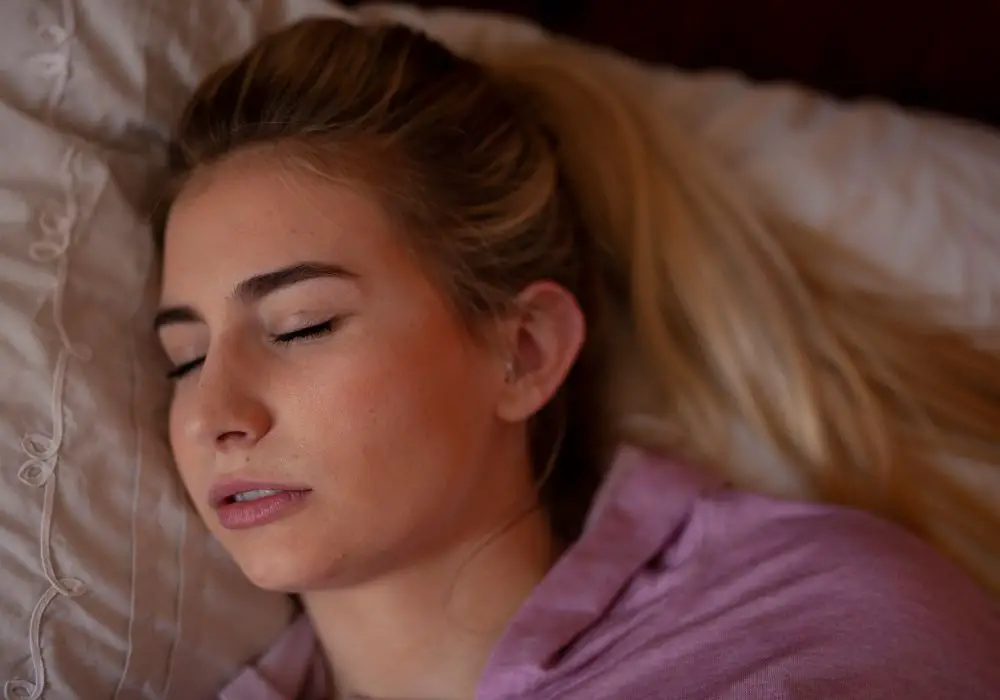
Here are some suggestions to help reduce bruxism and avoid further dental complications:
- Get custom night guards and wear them nightly. These are your teeth’s greatest protectors during sleep.
- Learn healthy stress management through counseling, yoga, meditation, journaling, or other anxiety-reducing methods. This disrupts the stress-grinding loop.
- Limit consumption of alcohol, caffeine, and nicotine. All of these compounds can exacerbate grinding, especially during nighttime sleep cycles.
- Exercise regularly to help balance hormones, release endorphins, and promote restful sleep. This offsets triggers.
- Take medications precisely as prescribed if your dentist recommends short-term use.
- Prioritize getting enough quality sleep. Insufficient restless sleep and apnea correlate to more intense bruxism.
- Improve posture and ergonomics when sitting and standing to avoid sustained jaw and neck tension.
- Consume soft foods temporarily if you have acute muscle pain while chewing.
- Do gentle jaw and facial massages to relax muscles and relieve spasms.
- See your dentist every 6 months to allow them to assess grinding and repair stability.
With diligent at-home care and professional dental treatment, you can successfully repair teeth grinding effects and defend your oral health for the long-term. But this preventative work must stay consistent.
Frequently Asked Questions
Is it possible to stop grinding teeth during sleep?
Fully halting nocturnal teeth grinding can be extremely challenging since it’s usually an involuntary subconscious behavior occurring during deep sleep phases. However, using a properly fitted night guard definitely helps shield teeth from damage during episodes. And addressing triggers like stress through counseling may still reduce grinding frequency long-term.
Do dentists construct night guards from your natural teeth?
Yes, dentists can create custom-made night guards using dental acrylic that precisely matches your actual teeth. Your dentist takes impressions or scans of your teeth to digitally craft ultra-accurate night guards. These are far more comfortable and effective than generic drugstore guards.
Can severe lifelong bruxism be permanently stopped?
There is no definitive “cure” for teeth grinding and related jaw clenching. However, today’s treatments like night guards, bite adjustments, physical therapy, and medication can help manage bruxism. Reducing associated factors like sleep deficiencies, intoxicants, and chronic stress remains imperative. But grinding may come and go randomly throughout life.
Is it okay to keep grinding with a night guard installed?
Night guards are engineered to withstand strong grinding and clenching forces. So it is acceptable to keep grinding with a properly fitted guard protecting your natural teeth from damage or discomfort. However, addressing any identifiable causes of your grinding through therapy, sleep studies, etc., is still recommended for your long-term dental health.
Should you urgently visit a dentist if you suspect mild grinding?
You don’t need to rush to the dentist’s office immediately if you notice minor possible grinding. But do schedule an appointment soon, within the next few weeks, to have it evaluated. Seek prompt emergency care only for sudden severe symptoms like extreme jaw pain, damaged teeth, or difficulty chewing. Addressing grinding early often limits dental destruction.


